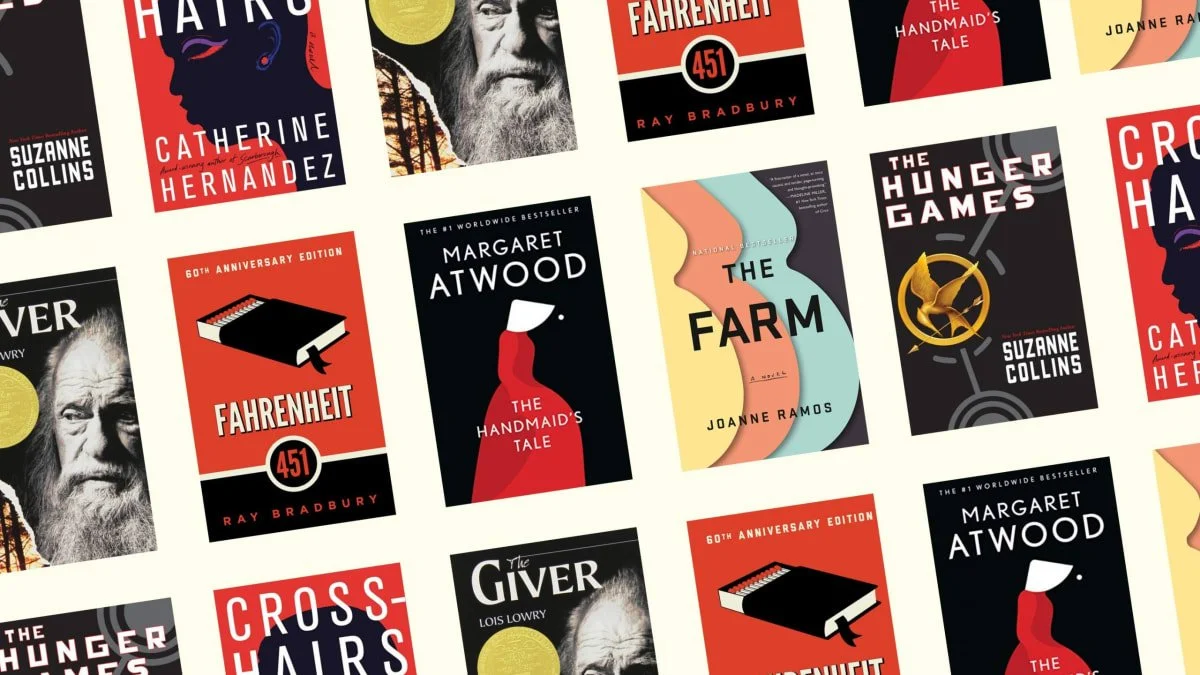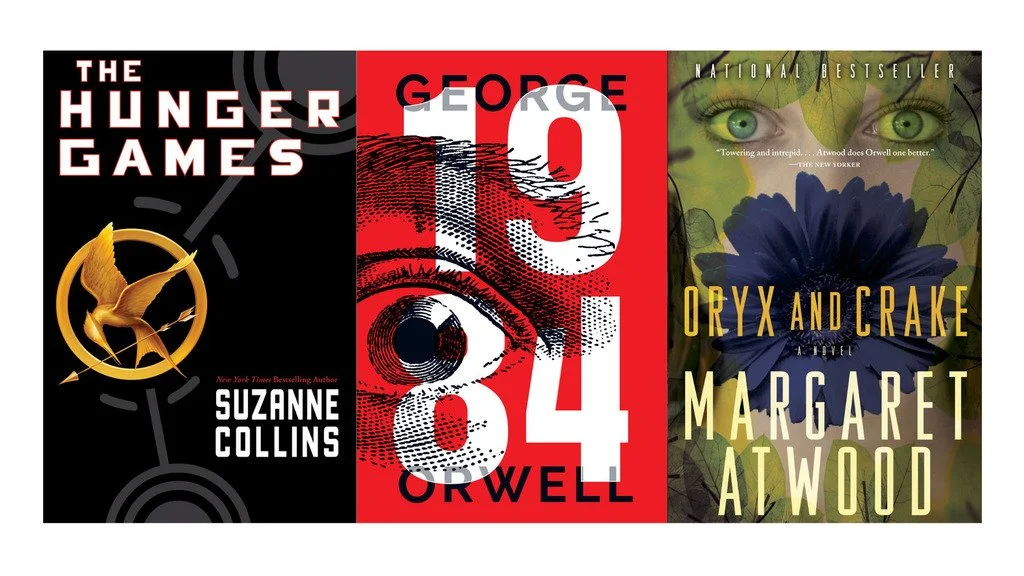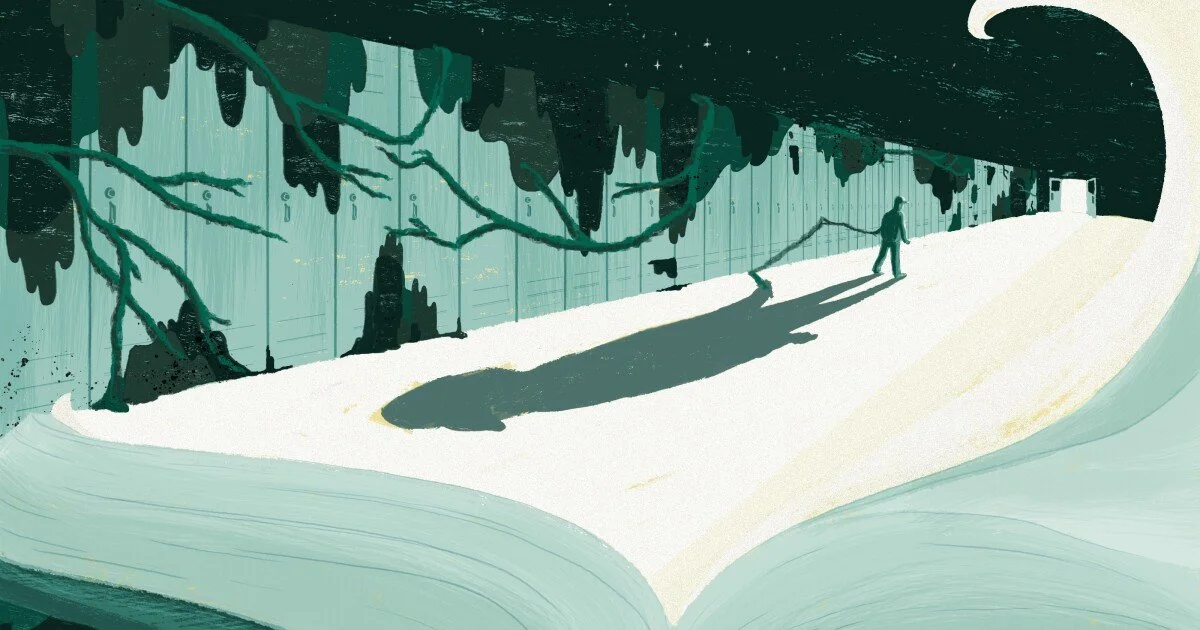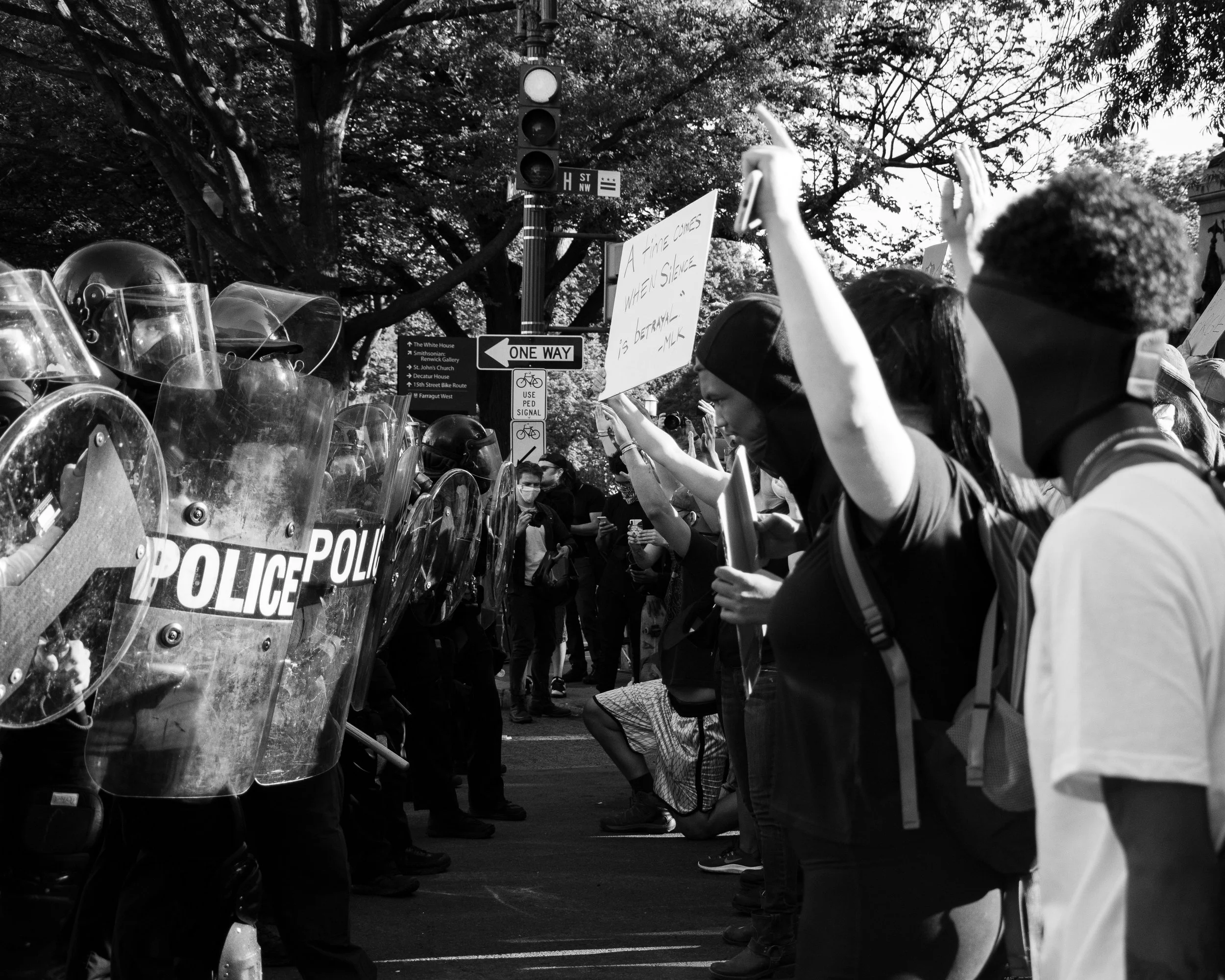
What is Dystopian Literature, and why is it so popular?
I originally wrote this essay piece during my first year of college for my research based writing course. I have always been fascinated with dystopian literature ever since I started to read many books of this genre in middle and high school. I noticed a surge in production of books and media in the dystopian genre and the increase in popularity of consuming media from this genre, especially amongst young adults (Generation Z). After much research, I have found, not causation, but some correlation between the rise in consumption of dystopian media and the outspoken tendencies of Generation Z. I believe that this article showcases my skills that I have obtained through my time studying English in college including, critical thinking, conducting research, and writing formal and professional writing.

“Dystopian literature has certainly changed dramatically in recent years, but overall interest in these stories and how they represent our society, seems everlasting.” — Mary Baldwin
It is said that books hold great knowledge and many lessons that can benefit readers. There are many genres that dedicate their purpose to teaching lessons such as parables, fables, and many more. However, recently there has been a peak in interest towards one specific genre, dystopian literature. With the rise of popular dystopian books such as The Hunger Games and The Handmaids Tale becoming movies and television shows, the discussions of the book’s hidden meanings have also surfaced. Almost every author writes a book for a reason; in this case the author’s goal is to spread awareness, educate, and even criticize society around them. According to Michael Bodni, a co-editor of Race in American Film: Voices and Visions that Shaped a Nation, “...not all allegories are dystopias, dystopias are also almost always allegories.” Because of these not so hidden allegories, it is crucial to read these important and thrilling books. With rising fear of our future, it can be reassuring to read stories about characters who succeed in dystopian books. Social media usage has also increased. With this comes the exposure of political conflicts and international affairs. Generation Z has become more involved and outspoken with politics due to this increase in exposure as it is one of the first generations to have social media fully integrated into daily operations.
What is Dystopian Literature?
Dystopian literature is also well known amongst young adults in America and Western Europe because of the sense of security that comes with it. According to blogger Madeline Dyer, “exploring dystopian worlds has become a defense mechanism, possibly instigated by the many events (such as war, poverty, and famine) that threaten societies here and now.” Dyer explains how fear is instigated through dystopian literature for the potential realities that could occur due to government and negative social climates. This fear has become very popular amongst young adults due to the reality we live in today. The constant news surrounding politics, famine, war, wealth, and many more factors, has led to the question of whether or not these realities may take place. As more books continue to be produced, and more readers become interested, the fear continues to rise due to the connections between society outside and inside of the books.
Over time dystopian books have evolved into more realistic and relatable content, but the meaning stays the same. According to researcher Mary Baldwin, “dystopian literature has certainly changed dramatically in recent years, but overall interest in these stories and how they represent our society, seems everlasting.” Baldwin explains how during the days of George Orwell’s 1984 and its popularity, readers still felt affected. With the popularity of the series The Hunger Games and other books such as Margaret Atwood’s Oryx and Crake, the relatability factors are different, but one theme remains the same, educating the readers.
Dystopian literature is one of the most prominent and influential genres, holding important lessons and allegories. According to freelance journalist Michael Bodni, “The dystopian genre imagines worlds or societies where life is extremely bad because of deprivation or oppression or terror, and human society is characterized by human misery, such as squalor, oppression, disease, overcrowding, environmental destruction, or war.” Most dystopian books highlight extreme conditions that relate to the societies at the time the stories were written. It is well known that Ray Bradbury’s most popular work, Fahrenheit 451, was inspired by the oppressive Nazi regime that was taking over the minds of citizens during World War II, and their action to burn books during this period. Additionally, dystopian literature has evolved over time to fit the relatability of modern-day societies. Researcher Mary Baldwin says, “dystopian literature has certainly changed dramatically in recent years, but overall interest in these stories and how they represent our society, seems everlasting.” With the widespread depiction of dystopian stories in modern day movies and television, interest in the relatability of the stories has increased. Baldwin also continues to state the first prominent start of dystopian literature with Thomas More’s Utopia where “’he combined a most penetrating criticism of his own society.’” According to Baldwin, “people who lived under the burdens and hardships of the 16th and 17th centuries were actually more optimistic about a better future for mankind than the generations to come.” The relatability of the dystopian stories comes from depictions of current events happening in society.
Baldwin continues to support her statements with insight on how George Orwell’s 1984 and Phillip K. Dick’s The Man in the High Castle relates to popular dystopian books today including The Hunger Games by Suzanne Collins, and Divergent by Veronica Roth. She states, “This type of story tends to give the reader, particularly young readers, hope and confidence, and many have become “adventure franchises” which are later adapted into movies and tv shows.” In past and present dystopian literature still affects readers in a beneficial way. Michael Bodni also mentions the relatability factor of dystopian literature and how recently it has become more popular due to the increase in movie and television show adaptations such as Margaret Atwood’s The Handmaid’s Tale. Bodni states, “Dystopian fiction is usually set in the near — rather than far — future to generate urgency about real current events.” He explains how dystopian literature often relates to current day or future societies by tying in factors such as “climate change, nuclear war, over-population, or authoritarianism” in modern day society. Overall, dystopian literature has proven to be essential in today’s society with the growing conflicts. With changing governments and political climate, the question is raised, what aspects of our government are tied into the dystopian books.
How does it tie to our government?
It is well known amongst members of the literature community that dystopian literature almost always acts as pieces of criticism towards modern day society. Whether the topic of choice is global warming, economic crisis, apocalypse, or corruption there is usually a centralized government referenced. Researcher Nepur Neogi, from Northeastern University, conducted a study using popular words in our society such as “government,” ruling,” and “state;” comparing it to the number of times the words are mentioned in the dystopian books. According to Neogi, her main goal was to find “how the government is represented in these novels,” and “how citizens in a society are represented through their relationship with the government.” In the end Neogi found that her quantitative data was significant in the sense that “This data may begin to tell us something about the similar fears of the people writing the novels, as writers reflect on the dominant ideologies at play in their own societies, the realities these ideologies construct, and how this lends the government power over the people.” Overall writers of dystopian books use their platforms to write about prominent societal and political issues.
There are several instances in dystopian books where intentions of outreach are very evident. According to researcher Mary Baldwin, “It is speculated that George Orwell’s influence for writing 1984 was as a response to the buildup of atomic weapons after World War II.” Orwell’s famous book revolutionized the dystopian literature world and became one of the first examples of a realistic way to look at the future.
Considering when some of the books were written, the future is now. Baldwin mentions how older books such as 1984 and Brave New World apply to society today, and how their “predictions” might be coming true. She brings light to the prominent issue of, “A significant invasion of privacy in our own country” due to the “mass spying conducted by the United States National Security Agency.” Baldwin ties this important event to the concept of the overly invasive Big Brother in George Orwell’s book 1984. With this information Baldwin continues and states, “It seems as if the more protections we try to put in place the more our country itself begins to look like a dystopia.” While dystopian books directly apply to society today, according to Baldwin, society is applying to dystopian literature now. For dystopian writers today, their goal is to bring this issue to light through their works.
Dystopian writer and blogger Madeline Dyer writes on how “dystopian fiction draws from current events.” She first states the ultimate goal for dystopian writers when writing a book, “As authors, we need our readers to feel that what we’re showing them is important on multiple levels if we want our dystopian worlds to be terrifying—which they should be.” According to Dyer, how this is completed is by subtly tying current events into the books. She continues and states, “pulling a dystopian environment from a current real life event or issue is a great way to generate this engagement between reader and book, because the reader will automatically relate to things that feel familiar” Authors feel as though it is important to bring in current events, not only to bring awareness to social and political issues that are happening, but also to engage readers. When reading important lessons and hidden meanings like this, readers need to be engaged, but in the end, it is how it affects us that really matters.
How does it affect us?
It is known that books have influence on its readers, especially dystopian literature. According to researcher and undergraduate student, Aysha Jerald, dystopian literature has an influence on Generation Z young adults because of books like Divergent by Veronica Roth and The Hunger Games by Suzanne Collins. Jerald conducted a study by interviewing fellow students on the University of Georgia campus. She asks the students questions on if they have read popular dystopian books, and how they felt after reading the books. According to Jerald, one student responded with, “’I felt the idea of Factions was pretty reflective of our society... I felt like how they divided themselves so strictly and kept themselves in boxes and the fight for leadership was kind of reflective of what [I’ve] seen today... What’s legal may not always be right; the laws may not be fair.”’ From the study, it is found that Generation Z young adults share similar characteristics to the characters in the book Divergent. Dystopian literature affects people in many ways, but in some ways it ensues extreme fear.
There are always extremists when it comes to outside influence. In this case, according to researcher and blogger Courtney Heck, when it comes to extremism from dystopian literature, there are “doomsday preppers.” In one of her blog posts Heck states, “In apocalyptic dystopian entertainment, the attraction lies in the thought that maybe we should return to a simpler life, and maybe we could survive and be happier after a catastrophic event.” When reading dystopian literature, most readers find a sense of hope. As blogger and dystopian writer Madeline Dyer explains in one of her posts, “Readers want to find out more about this world to protect themselves, give themselves advance warning of potential, dangerous situations that could arise from current events… and therefore make sure that it doesn’t happen.” In a way this is painted as a “healthy” way to read dystopian books. However according to Courtney Heck, there is also an “unhealthy” way. Heck continues, “While dystopian films or novels can be inspiring, can be thought provoking and action propelling, can too much of them lead to desensitization. If you’ve ever been repeatedly told to do something, you’ve either embedded it into your brain and it becomes a habit or you ignore it.” As Heck explains, doomsday preppers are the result of desensitization towards societal issues. However, this is just a small percentage of people, and dystopian literature remains to be crucial.
Reading dystopian books has been said to bring up hope and optimism for the future due to the “unrealistic” and “dramatized” potential civilizations portrayed in the books. According to author of Untamed, Madeline Dyer, “through reading about potential dystopian futures in a safe environment, we keep them as exactly that: potential realities... We have experienced them in a way that lets us explore the consequences of what could happen if a current event spirals out of control, yet we haven't been harmed.” She explains how overall we believe the events occurring in the dystopian books will not fulfill themselves because we learn about the lessons. According to University of Georgia student, Aysha Jerald, she had a student who participated in her research study and the participant, “expressed how Katniss in The Hunger Games trilogy inspired her to speak out even if in her life or reputation were in danger.” Even if the exact situation occurring in the Hunger Games is not occurring in real life, the student interviewed still felt inspired and hopeful. This information further explains that no matter what the outcome is, dystopian literature still affects the readers.
Let’s Discuss:
Image taken by Koshu Kunii
Considering that Generation Z is one of the most influential and “rebellious” generations, I found it interesting how young adults are mostly affected by dystopian literature. While there is no direct influence between the generations and actions, there is a uprise in the popularity of the stories. With the government constantly changing, and current events evolving, our generation has sought out a way to adapt to the political climate. Unfortunately, due to the recent event occurring in modern day society, young adults have resorted to finding hope in dystopian stories, as they portray aspects of our society today. No matter the “age” of the books, there is still influence. As the popularity of dystopian literature increases, I would like to research the popularization of dystopian stories and the televisions adaptations. I would also like to research more into the ties between our government and the governments in dystopian books. These stories are important in today’s society for the crucial lessons to be learned, especially with the rise of book banning in schools across the United States and Western Europe.
Along with the changes in our society, I believe that research on dystopian literature will develop due to the popularization of the stories in media, and the aftermath of the COVID pandemic. As the curriculum in schools changes it is more important than ever to learn lessons about our society. I remember when I first became interested in dystopian literature, it was at the height of the pandemic and my teacher was teaching Margaret Attwood’s book, Oryx and Crake. Since then, my interest has increased, and after researching dystopian literature’s effects, I feel more invested in the subject. With more influence and research, I believe that there could be influential and big developments in the literary world.
Citations:
Baldwin, Mary, “The Evolution of Dystopian Literature,” 2018. https://www.ramapo.edu/honors/wp-content/uploads/sites/55/2019/08/Baldwin-Senior-Project.pdf
Bezrukov, Andrii, and Bohovyk, Oksana, “Mutation of Dystopian Identity in the Age of Posthumanism: Literary Speculation.” Issues of Literary Narratives and Contexts, Vol. 2, No. 42, August 2022, pgs. 52-64, https://research.ebsco.com/c/knpbi4/viewer/pdf/e7tnk26oxb
Dyer, Madeline. “How Dystopian Fiction Draws from Current Events.” International Writing, Lyn Miller-Lachmann, July 22, 2015. https://lynmillerlachmann.com/how-dystopian-fiction-draws-from-current-events-guest-post-by-madeline-dyer/#:~:text=It%20draws%20on%20current%20events,on%20a%20physically%20greater%20scale.
Gilbert, Sophie, “The Remarkable Rise of the Feminist Dystopia: A spate of women-authored speculative fiction imagines detailed worlds of widespread infertility, criminalized abortion, and flipped power dynamics,” The Atlantic, October 4, 2018. https://www.theatlantic.com/entertainment/archive/2018/10/feminist-speculative-fiction-2018/571822/
Heck, Courtney, “Dystopian Culture’s Influence on Society: In a time of fear, crises, and anxiety dystopian futures become more popular in pop culture,” Medium, May 3, 2014. https://medium.com/@WhatTheeHeckkk/dystopian-cultures-influence-on-society-960720342152#:~:text=(Hermes)%20Dystopian%20culture%20is%20set,the%20end%20of%20the%20novel.
Kanwal, Afia, et. Al, “Dystopia: Reflection of Real World in The Hunger Games.” Ilkogretim Online- Elementary Education Online, Vol. 19, Iss. 3, 2020, pgs. 3990-3999, https://ilkogretim-online.org/index.php/pub/article/view/6407/6202
Kaplan, E. Ann., “Introduction: Pretrauma Imaginaries: Theoretical Frames,” Climate Trauma: Foreseeing the Future in Dystopian Film and Fiction, 2016, pgs. 1-22, https://kennesaw.view.usg.edu/d2l/le/content/3427810/viewContent/53562960/View
Radhakrishnan, G V, “The Role of Literature in Shaping Environmental Consciousness: Ecocritical Perspectives in Modern English Literature.” Advances in Consumer Research, Vol. 2, Iss. 1, February 2025, pgs. 24-31, https://research.ebsco.com/c/knpbi4/viewer/pdf/426xoennrf
Sriastuti, Anna, “Viewing Postmodern American Youth Society Through Uglies and The Hunger Games: A Turn From Nostalgia to Escape.” Rubikon Journal of Transnational American Studies, Vol. 9, No. 1, April 2022, pgs. 55-66, https://research.ebsco.com/c/knpbi4/viewer/pdf/7crlcvynf5




